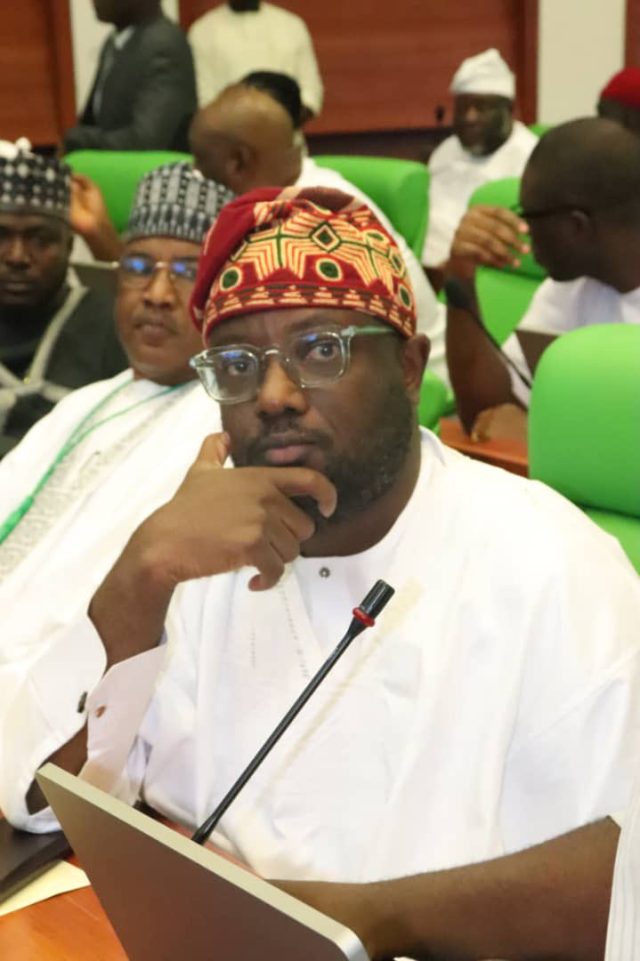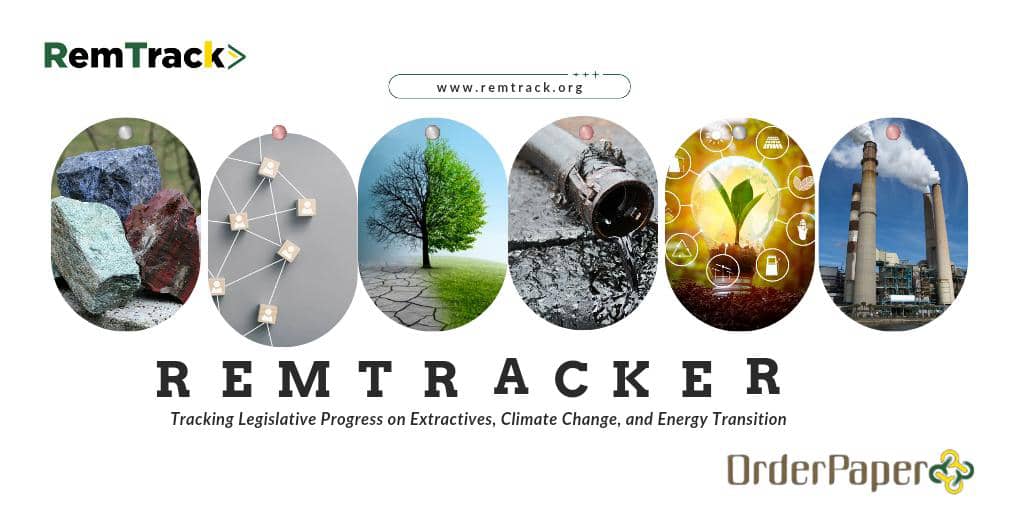RemTracker this week highlights legislative attention on lithium, gas flares, local content in the oil and gas industry, and the latest update on the south-south development commission.
Close attention to lithium
Rep. Victor Obuzor (PDP, Rivers) proposed a motion in the House of Representatives on Wednesday emphasizing the need to upscale the lithium industry and its value chain as a catalyst for driving energy sufficiency and economic growth. The motion cautions against repeating past mistakes in the oil and gas sector by focusing solely on upstream activities while neglecting downstream opportunities.
Nigeria possesses significant lithium reserves in Kogi, Kwara, Ekiti, Ogun, and Cross River states, presenting numerous investment opportunities that attract both local and foreign investors eager to explore Nigeria’s high-grade lithium deposits and contribute to the country’s energy transition efforts. Despite this potential, the sector remains underdeveloped, with no definitive estimate of the country’s lithium reserves available, even after exploration surveys commissioned by the ministry of solid minerals development under the National Integrated Mineral Exploration Project (NIMEP).

The motion, which was adpted by the House, urged the ministry of solid minerals development to establish a lithium production agency in line with Part II Section 4(P) of the Nigerian Minerals and Mining Act 2007. The House also called on the ministry to create a roadmap for developing necessary infrastructure for potential lithium mines in Nigeria and design a regulatory framework governing the sector.
As global demand for renewable energy increases in, Nigeria stands at a critical juncture; decisions made now will have lasting impacts on its mining landscape.
READ ALSO: Reps calls for lithium production agency
Decommissioning oil and gas installations
In a bid to create a safer environment, Speaker of the House of Representatives, Abbas Tajudeen (APC, Kaduna) and two other lawmakers have proposed a bill titled National Commission for Decommissioning of Oil and Gas Installations (NC DOGI Bill, 2024 – HB 1968). The bill passed its first reading on 5th December, 2024.
QUICK EXPLAINER: Decommissioning marks the final stage of an oil or gas project where infrastructure is removed and areas are restored to safe, environmentally acceptable conditions. This process is crucial given Nigeria’s extensive petroleum activities and the need for sustainable environmental practices. The Petroleum Industry Act (PIA) of 2021 introduced specific provisions for decommissioning, establishing a regulatory framework that was previously lacking.
In the framework, operators are mandated to submit detailed decommissioning plans—including funding estimates and environmental impact assessments—to either the Nigerian Upstream Petroleum Regulatory Commission (NUPRC) or the Nigerian Midstream and Downstream Petroleum Regulatory Authority (NMDPRA) for approval.

Applications to decommission must be submitted at least 24 months prior to proposed start dates for land-based installations and 36 months for oil fields on land. Each decommissioning process must also adhere to good international petroleum industry practices.
Establishing a dedicated commission for decommissioning is a significant step towards ensuring compliance with the law, promoting environmental protection, and safeguarding public safety. The proposed commission will manage decommissioning funds effectively, facilitate stakeholder consultations, enforce penalties for non-compliance, and align Nigeria’s practices with international standards. Ultimately, a well-functioning decommissioning commission will enhance transparency in the oil and gas sector, mitigate environmental risks associated with abandoned installations, and contribute to Nigeria’s sustainable development goals.
Reforming local content law
A bill aimed at repealing the Nigerian Oil and Gas Industry Content Act No. 2, 2010 and enacting the Nigerian Oil and Gas Industry Content Act to establish Nigerian Content Development and Monitoring Board (HB. 1039) has passed its third reading in the House of Representatives. This new legislation introduces reforms into the existing act which emphasizes participation by Nigerians in various industry roles while ensuring that regulatory authorities prioritize local content in project execution. It also mandates that Nigerian independent operators receive first consideration in awarding oil blocks, licenses, and contracts in the sector. Watch out for details of this significant legislative milestones in subsequent editions of RemTracker.
Prohibition of gas flaring
A Bill for an Act to “prohibit gas flaring and encourage gas utilization while providing penalties for violations (HB. 1819) has passed its second reading in the House of Representatives. This bill, sponsored by Rep. Babajimi Benson (APC, Lagos), seeks to harmonize existing legislation towards achieving a zero-flaring target in alignment with international best practices. It aims to ensure compliance with environmental standards while promoting economic growth through better utilization of natural gas resources. Watch out for details of this bill in subsequent editions of RemTracker.

READ ALSO: Bill to prohibit penalize gas flaring scales second reading
Senate adopts report on south south commission
The senate has adopted the report of the committee on the South-South Development Commission (Establishment) Bill, 2024 (SB. 358). This adoption follows harmonization between both chambers of the national assembly after Sen. Mohammed Tahir Monguno (Borno north), chairman of the committee, presented the report.
The South-South Development Commission (SSDC) will play a vital role in addressing host communities’ needs within Nigeria’s south-south region—particularly those affected by oil and gas activities. The commission aims to tackle challenges such as environmental degradation, inadequate infrastructure, and social inequalities exacerbated by oil exploration.
Stay tuned for the next episode of RemTracker as we continue to uncover important developments in Nigeria’s extractive industry!



